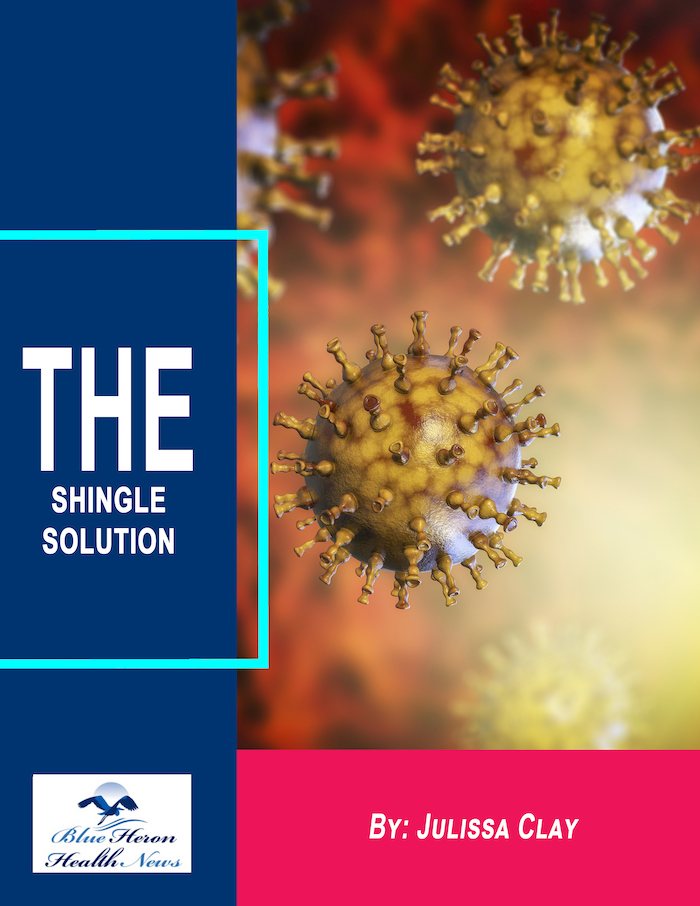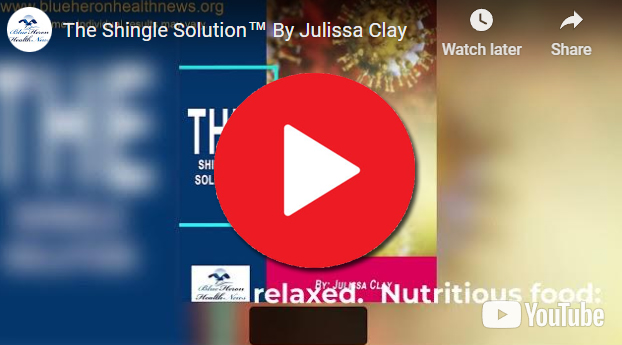
The Shingle Solution™ By Julissa Clay This eBook includes a program to treat the problem of shingle naturally. The author of this eBook, Julissa Clay, a practitioner in natural health, has killed the shingles causing virus completely to overcome the problem of PHN or Postherpetic neuralgia, one of the common complications caused by shingles. This program helps in melting PHN in a few weeks and make shingles a forgotten nightmare.
How can one boost their immune system to fight shingles?
Boosting the immune system to fight shingles, also known as herpes zoster, involves a combination of lifestyle practices, nutritional strategies, and, in some cases, supplements. While there’s no guaranteed way to prevent shingles, a robust immune system can help your body better manage the virus and potentially reduce the severity and duration of symptoms. Here’s a detailed guide on how to support and boost your immune system:
1. Nutrition and Diet
A well-balanced diet rich in essential nutrients supports overall immune function. Here are key components:
a. Vitamins:
- Vitamin C: This powerful antioxidant helps stimulate the production of white blood cells and enhances the skin’s barrier function. Sources include citrus fruits (oranges, lemons, grapefruits), strawberries, bell peppers, kiwi, and broccoli.
- Vitamin D: Known as the “sunshine vitamin,” vitamin D plays a crucial role in immune regulation. Sources include sunlight exposure, fatty fish (salmon, mackerel), fortified foods (milk, cereal), and supplements if necessary.
- Vitamin E: An antioxidant that helps fight off infection. Found in nuts (almonds, hazelnuts), seeds, spinach, and sunflower oil.
b. Minerals:
- Zinc: Essential for immune cell function and signaling. Rich sources include meat, shellfish, dairy products, nuts, seeds, and legumes.
- Selenium: Supports the immune system and can be found in Brazil nuts, seafood, eggs, and whole grains.
c. Probiotics and Prebiotics:
- Probiotics: These beneficial bacteria can enhance gut health, which is closely linked to immune function. Sources include yogurt with live cultures, kefir, sauerkraut, kimchi, and other fermented foods.
- Prebiotics: Non-digestible fibers that promote the growth of beneficial bacteria in the gut. Found in foods like garlic, onions, leeks, asparagus, bananas, and whole grains.
d. Healthy Fats:
- Omega-3 Fatty Acids: These fats have anti-inflammatory properties and can be found in fatty fish (salmon, mackerel, sardines), flaxseeds, chia seeds, and walnuts.
2. Lifestyle Practices
a. Regular Exercise:
- Moderate exercise boosts circulation, reduces inflammation, and promotes the healthy turnover of immune cells. Activities like walking, cycling, swimming, and yoga are beneficial. However, it’s important to avoid overtraining, which can suppress immune function.
b. Adequate Sleep:
- Sleep is essential for immune health. Aim for 7-9 hours of quality sleep per night. Poor sleep can weaken the immune system and increase susceptibility to infections.
c. Stress Management:
- Chronic stress can suppress the immune system. Practices such as mindfulness, meditation, deep breathing exercises, and hobbies can help manage stress levels.
d. Hydration:
- Staying well-hydrated helps maintain the mucosal membranes that act as barriers against infections and supports overall bodily functions. Drink plenty of water throughout the day.
e. Avoid Smoking and Limit Alcohol:
- Smoking and excessive alcohol consumption can weaken the immune system. Reducing or eliminating these habits can significantly improve immune function.
3. Immune-Boosting Supplements
a. Vitamin C and D Supplements:
- If dietary intake is insufficient or if you have limited sun exposure, supplements may be necessary. Vitamin D, in particular, is often recommended in supplement form, especially during the winter months or for those living in northern latitudes.
b. Zinc Supplements:
- Zinc supplements can support immune function, but they should be taken in moderation, as excessive zinc can inhibit immune function and interfere with copper absorption.
c. Herbal Supplements:
- Echinacea: Believed to help boost the immune system and fight infections, though evidence is mixed.
- Elderberry: Contains antioxidants and vitamins that may support immune health.
- Garlic Extract: Garlic has been shown to have immune-boosting properties, possibly due to its high sulfur content.
d. Probiotic Supplements:
- If dietary intake of probiotic-rich foods is inadequate, supplements can help support gut health and, by extension, immune function.
4. Vaccination
Shingles Vaccine:
- The shingles vaccine, such as Shingrix, is recommended for older adults and those with weakened immune systems. It can significantly reduce the risk of developing shingles and its complications, such as postherpetic neuralgia.
5. Regular Health Check-ups
a. Routine Medical Check-ups:
- Regular visits to your healthcare provider can help monitor overall health and detect any issues that might compromise immune function, such as nutrient deficiencies or chronic conditions.
b. Manage Chronic Conditions:
- Managing chronic conditions like diabetes, heart disease, or autoimmune disorders can help reduce their impact on immune function.
6. Hygiene and Preventive Measures
a. Hand Hygiene:
- Regular hand washing with soap and water helps prevent the spread of infections.
b. Avoiding Sick Contacts:
- Limiting exposure to people who are sick can reduce the risk of contracting illnesses that might weaken your immune system.
7. Mental and Emotional Well-being
a. Social Connections:
- Maintaining strong social connections can boost emotional well-being and reduce stress, indirectly supporting immune health.
b. Positive Outlook:
- A positive mindset and emotional resilience can help manage stress and support overall well-being, including immune function.
Boosting the immune system to fight shingles involves a holistic approach, including a nutritious diet, regular exercise, adequate sleep, stress management, and avoiding harmful substances like tobacco and excessive alcohol. While these strategies can support immune health and potentially reduce the severity and duration of shingles, it’s also important to consult with healthcare providers for personalized advice, especially when considering supplements or if you have underlying health conditions. Additionally, vaccination remains a key preventive measure against shingles.

The Shingle Solution™ if you are suffering from shingles then The Shingle Solution can be the best program for you to relieve your pain and itching by using a natural remedy. It describes the ways to use this program so that you can feel the difference after using it as directed. This natural remedy for shingles can also help in boosting your immune system along with repairing your damaged nerves and relieve pain and itching caused by shingles.